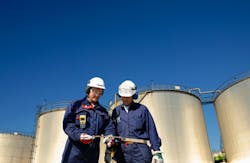As Canada is investing billions in the development of its oil and gas industry, there is an urgent need for people to be recruited in this fast-growing segment of the economy. Over the past 10 years Canada has invested over $100 billion in developing oil sands, with the province of Alberta becoming a major economic and political hub as powers shift westward. This development is estimated to have created 75,000 jobs across the county and is predicted to continue creating employment opportunities over the next 25 years.
Data from the Canadian Association of Petroleum Producers reveals that at present Canadian oil production stands at about 3.2 million barrels a day and is estimated to nearly double by 2030, with the majority of this output coming from oil sands, according to the Rigzone website. Over the next two decades Canada is predicted to spend CA$283.4 billion ($278.6 billion) on development of new oils sands projects, the Conference Board of Canada said. But as production rises, so does the need for qualified staff.
A new report from the Petroleum Human Resources Council of Canada has estimated that the country's oil and gas industry will need at least 9,500 new employees by 2015. Overall, the production of a unit of oil or gas needs additional workforce compared to the same unit of production 10 years ago. However, Canada's Oil and Gas Labour Market Outlook 2015 report also noted that there was a risk of losing three percent of the total number of people employed in the oil and gas industry by 2015 because of the persistently low natural gas prices. Still, the creation of new jobs boosted by two main factors, growth in operations and age-related attrition in the industry, will offset this loss.
RELATED: Oklahoma company to build propane dehydrogenation plant in Alberta
Employment in the oil sands sector is predicted to increase by around 5,850 jobs, or 29 percent, by 2015, compared with 2011 levels. New jobs in the pipeline sector are expected to reach 530 over the same period. Both sectors will need to increase their efforts in recruitment to make up for turnover and workers going into retirement. Longer-term estimates predict a further 145,000 jobs to be created by the Canadian oil and gas industry by 2035.
According to Cheryl Knight, CEO of the Petroleum HR Council, the situation on the labor market in the oil and gas industry is complex. There is demand for skilled workers in a number of specific occupations which substantially outpaces supply. Some of the positions where new staff are needed include derrick operators, rotary drill operators, service unit operators, drillers and testers. The Calgary Economic Development said that on average workers hired in the Canadian oil and gas industry can potentially earn higher salaries than their counterparts in U.S. companies. As a result of this trend more Americans are relocating to Canada, according to a 2011 report by Citizenship and Immigration Canada. In 2010, about 280,636 people were granted permanent residency — the highest number of legal immigrants in 50 years.
